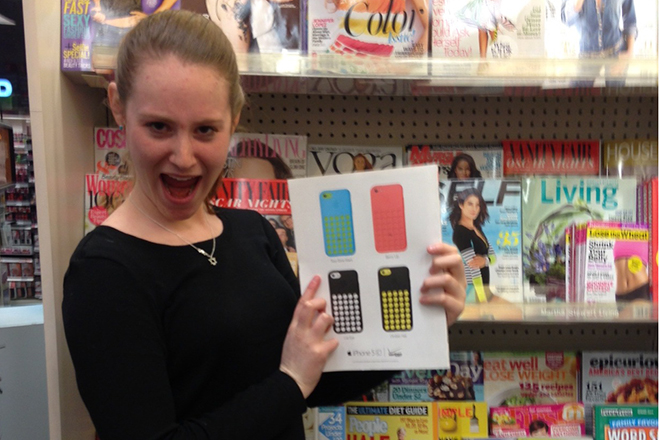
Put down that Sports Illustrated.
Northwestern’s Body and Media Lab started a campaign last week that encourages people to turn around magazines with covers that negatively impact women’s body image.
The initiative, fittingly called “Turn it Around,” is the Body and Media Lab’s first attempt at an activist campaign. Psychology professor Renee Engeln is in charge of the lab, where around 10 undergraduate psychology students conduct research related to body image, particularly in females.
“We’re trying to figure more about why it’s so hard for women to feel good about their bodies and what we might be able to do to help,” Engeln said.
Engeln said part of the problem is the unattainable standard of beauty certain magazine covers tend to promote.
“They’re really sexualized, really airbrushed, hyper-thin women,” Engeln said. “And when you’re in the checkout aisle of a grocery store, you shouldn’t have to look at those pictures; but you’re a captive audience and there’s only so many places for your eyes to go.”
The Turn it Around Facebook page, which was launched on April 24, has more than 300 likes. The campaign also has a Tumblr page, where participants can post pictures of themselves flipping magazine covers in stores like CVS and Barnes & Noble.
Weinberg sophomore Margaret Shavlik is a research assistant in the Body and Media Lab. She said she hopes the message spreads to both the Northwestern community and beyond.
“If people keep sharing this idea with their friends, and keep going to our Facebook and Tumblr pages, others will start to do it too,” Shavlik said. “The hope is that it’ll be like a snowball effect.”
Shavlik said the campaign is great for a variety of reasons, one being that it isn’t too difficult to do.
“I just turned it around in the orthodontist waiting room yesterday,” Shavlik said. “It takes only one extra second, but it can make a huge difference.”
And the Body and Media Lab has been trying to make a difference for a while. In the past, the lab has attempted to make students on campus feel better about themselves by spreading positive messages about body image. For example, lab researchers put random post-its around campus with things like “you’re beautiful.”
“But what we realized through research is that these positive messages aren’t very helpful for women,” Engeln said. “So with Turn it Around, we’re trying to reduce the amount of images we’re flooded with in mainstream media and everyday life.”
Communication junior Katherine Scott, another research assistant, said the Turn it Around campaign is a step Northwestern students can take to reduce body dissatisfaction rates among their peers.
“Body dissatisfaction among people, women especially, causes eating disorders, depression, anxiety and reduced performance in academics,” Scott said. “We’re trying to reduce the potentially damaging effects of these images.”
Most women’s magazines use PhotoShop to enhance the appearance of their models. In recent years, some publications, such as Seventeen Magazine, have vowed to stop using touch-up tools on their photos. But Scott said it’s not just the magazines that need to change – it’s society in general.
“There’s a culture where we present pictures of objectified females everywhere,” Scott said. “Through the Turn it Around campaign, we hope to change this damaging culture on an individual basis, and really help young women who struggle with body image.”
Engeln said the psychological effects of flipping these magazines over results in female empowerment. The absence of “perfect” magazine models disrupts the social comparison process, which allows women to feel more confident about their appearance.
And although the Body and Media Lab can’t necessarily change what magazines print on their covers, they hope it becomes a habit for people to turn these types of magazines over at checkout lines.
“You’re doing a favor for yourself and probably the people behind you,” Engeln said. “I like to think of it as a small victory.”